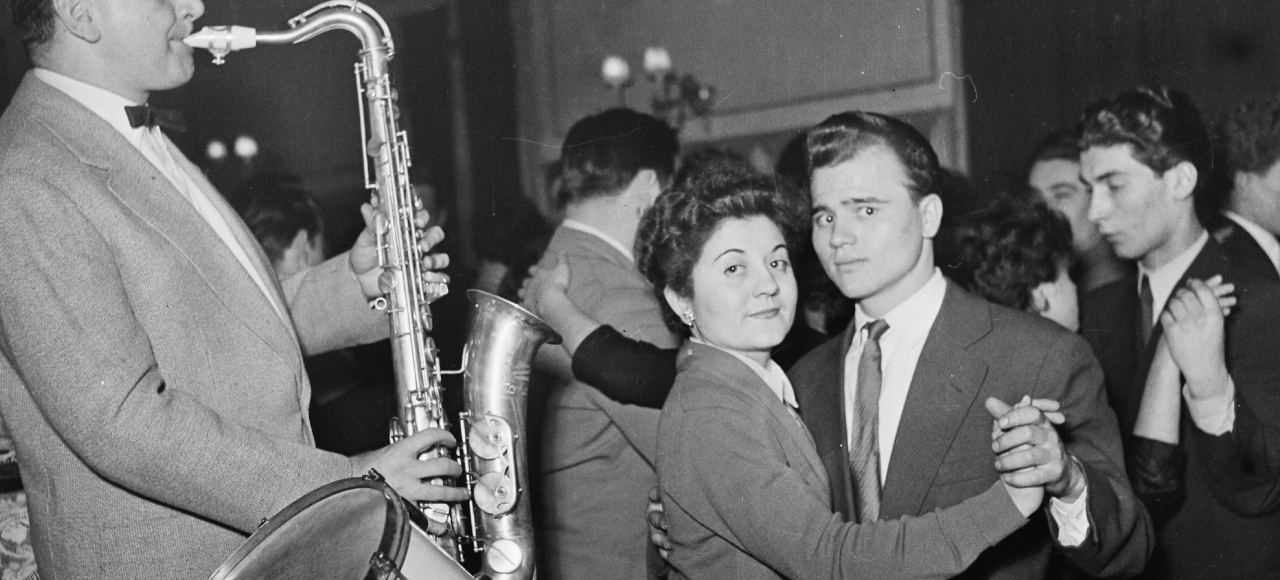
You might well think, upon becoming acquainted with the philosophy of music, that philosophers have no rhythm. Discussions of ontology, form and expression abound in the literature, but rhythm seldom receives attention. But rhythm is, if not uniquely, then at least paradigmatically musical – how could philosophers have ignored something so central?
One reason is methodological. The philosophy of music focuses almost exclusively on instrumental works drawn from the Western classical canon. Such works are indisputably great artistic achievements that demand theoretical scrutiny, but it’s worth noting that the primary raw materials of this artistic tradition are tonal rather than rhythmic. Consider a classical symphony, where percussion (if it is present at all) just about manages the occasional impassioned interjection at a moment of high drama – only to be immediately silenced by the violins.
What’s more, it’s rare for contemporary art music to be accompanied by rhythmic engagement of any kind on the part of its listeners. Even though we may feel like dancing to the beat of a symphonic waltz, we remain frozen in our seats, knowing that such displays of rhythmic appreciation are strictly verboten. One would no more dance in a modern concert hall than one would in the National Gallery.
So what happens when we turn our attention to rhythm? Is it business as usual for the philosophy of music, but now with added discussions of rhythm and beat? I don’t think so. I believe that a consideration of rhythm puts two central assumptions, often made by philosophers of music, under pressure – and in doing so, it forces a rethink of what music is to begin with.
The first assumption is that any rigorous inquiry into music should start by deliberately ignoring music’s connections to singing, dance, social rituals and religious ceremony; only then is one in a position to discover what is essential to it. The problem with that kind of approach is that that it’s hard to determine what is peripheral to an analysis of musical significance. Bracketing music’s connections to cultural and social life threaten to distort what is interesting about it in the first place. Rhythm, with its foregrounding of movement and dance, puts this “music alone” axiom under pressure.
But the second (and much more widespread) assumption is that music is a matter of sounds – that musical experience is, at base, a rarefied kind of hearing. In my work, I argue that central aspects of rhythmic experience, such as the experience of the “beat”, are deeply multimodal. First of all, considering music from the performer’s perspective – another thing that the philosophy of music has mostly neglected to do – makes a multimodal approach start to look compulsory rather than radical. Performers rely on touch and proprioception (a sense of where the instrument is in relation to their body) in order to control their instrument; they also depend on visual and haptic cues to synchronise their actions with other performers, as well as with the audience. But the evidence suggests that even the experience of the passive musical listener is thoroughly multisensory. Studies show that visual experience can influence our judgements not only of the high-level properties of a musical performance, such as virtuosity, but also of basic aspects of auditory experience like tone duration. Not only that, but our experience of rhythmic beat involves basic interactions between hearing and proprioception, which in turn implies that talk of “feeling the beat” may not just be a figure of speech. It’s becoming clear that a discussion of music in terms of “sound alone” leaves far too much out.
While cognitive psychology can help us to better understand the unconscious processing and observable behaviour associated with music, philosophical approaches offer a crucial perspective on musical experience itself. Music involves a unique blend of perceptual experience, embodied action and cognitive engagement. But so far, not only have philosophical discussions of music neglected much of what makes the phenomenon compelling, but they have also occurred solely within the confines of the philosophy of art – itself seen as an unfashionable philosophical outpost, existing at a remove from the “real” business of philosophy.
This has done music a disservice. Music shapes human experience across cultures, ages and all stages of development. We turn to music for solace when we are broken-hearted, for fortification when we are weak. Our very identities and relationships are forged with musical bonds: hearing a few bars of a once-familiar tune can transport us instantly into a vivid autobiographical past. I think it’s high time that music, thought of as a multimodal, multifaceted phenomenon, was rescued from the sidelines of philosophical investigation and given the careful, considered attention that it deserves.
This essay is one of 50 new ideas in philosophy that appear in a Special Edition of The Philosophers’ Magazine. Jenny Judge recently completed a PhD in musicology at the University of Cambridge. She is now studying for a second PhD in philosophy at New York University, where she is continuing to explore the resonances between musical experience and the philosophy of mind.

